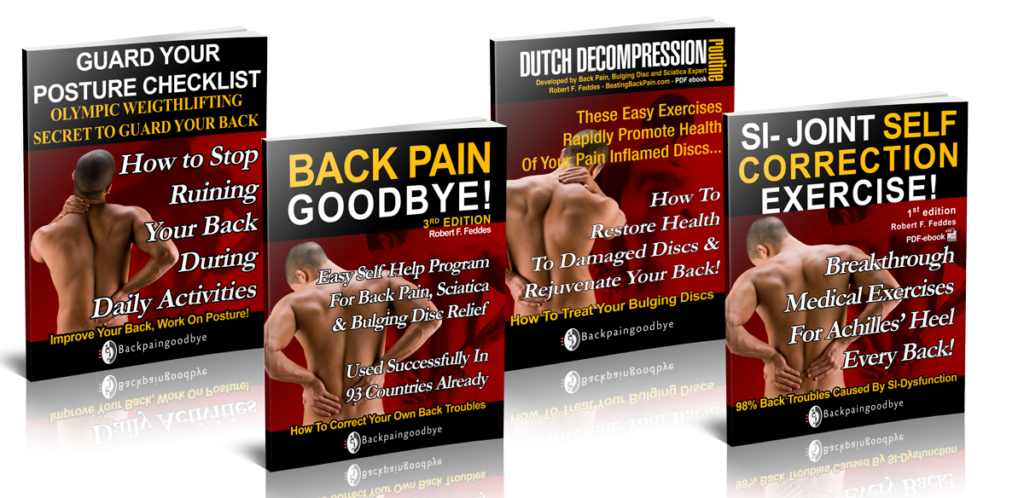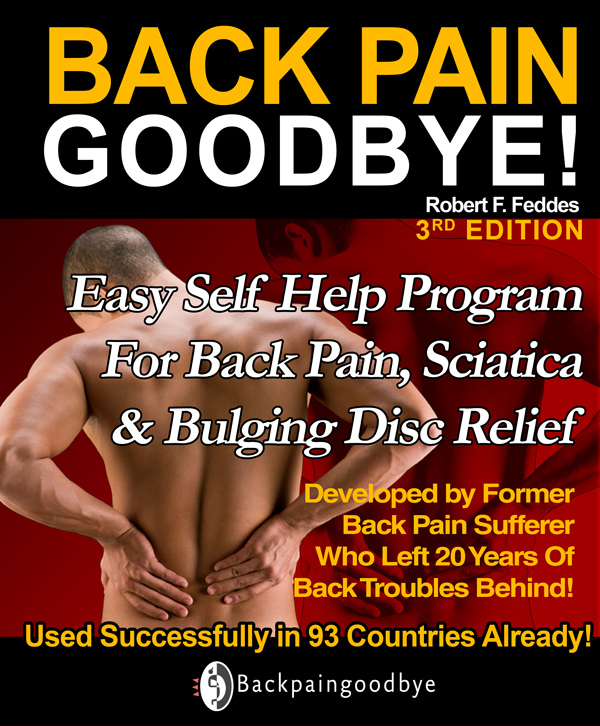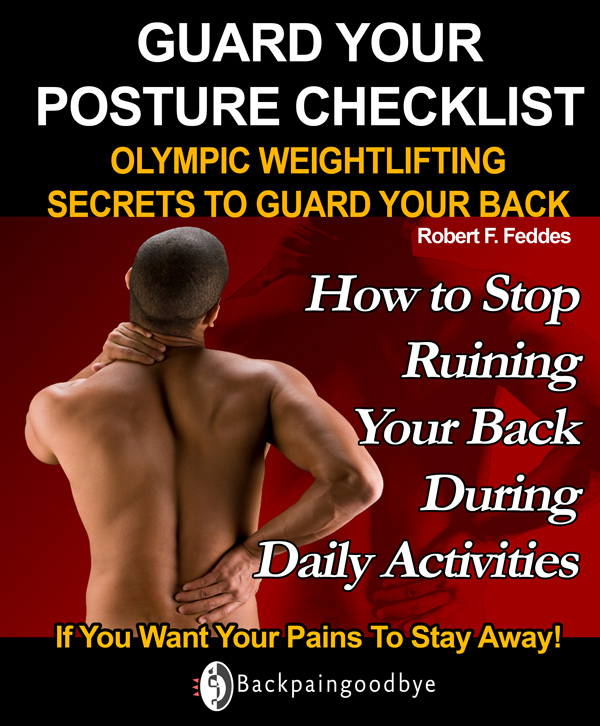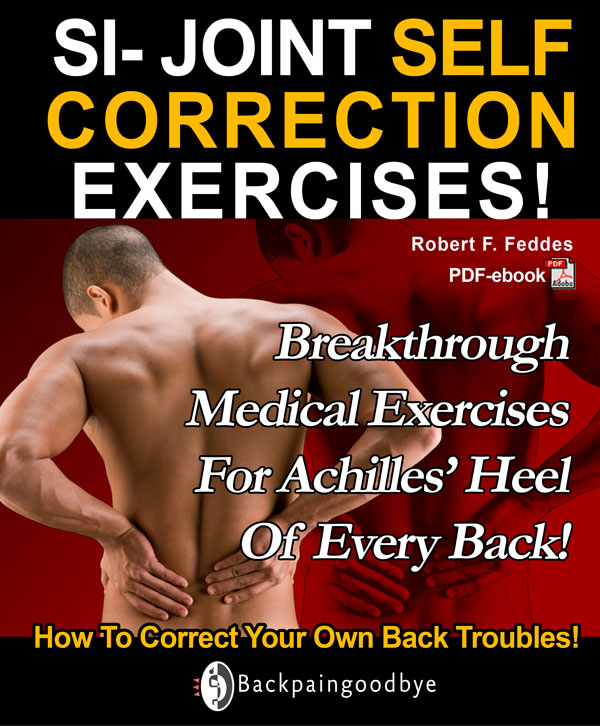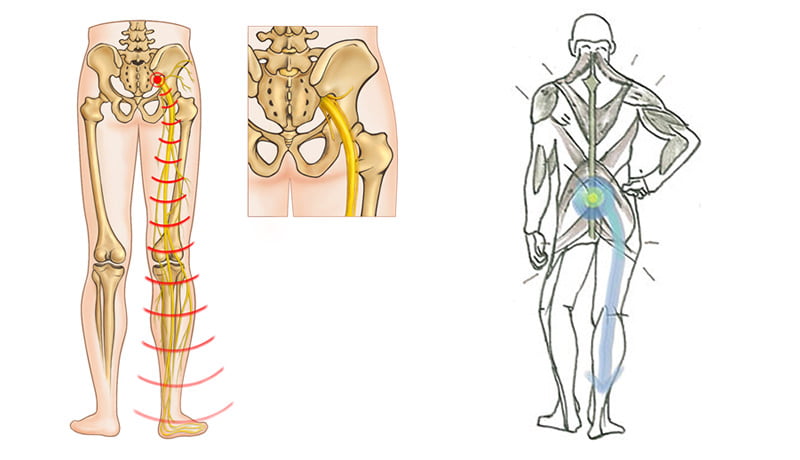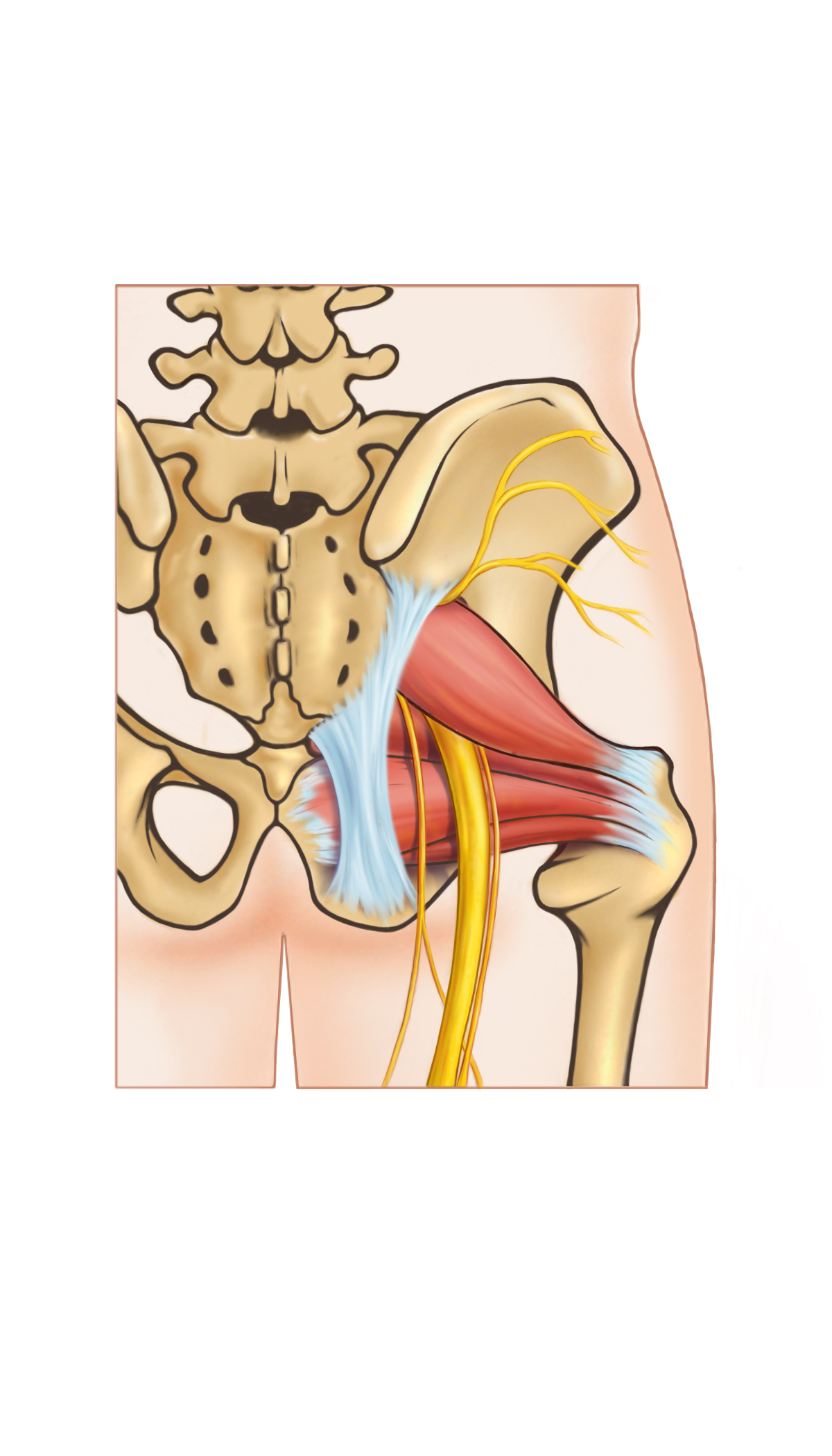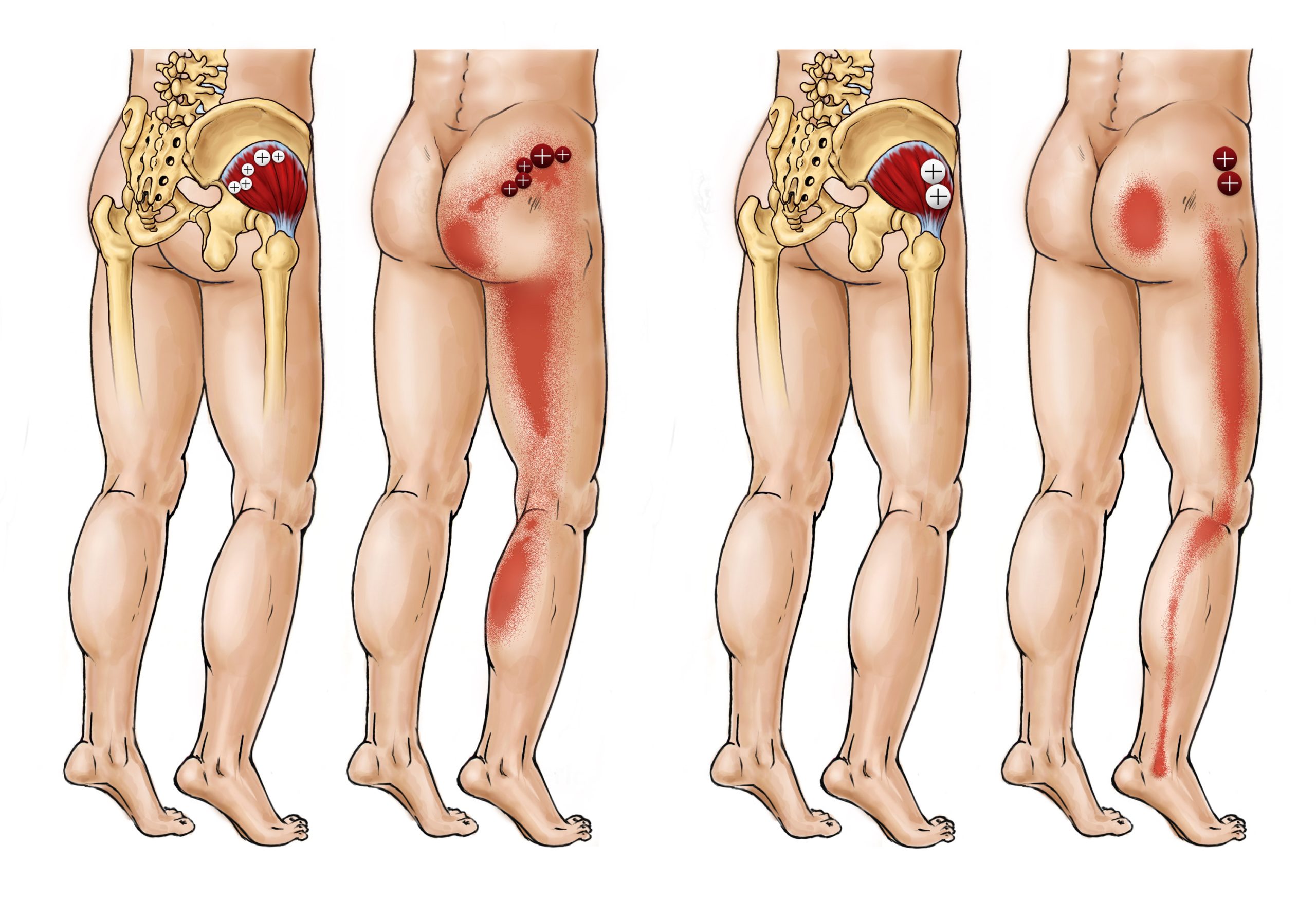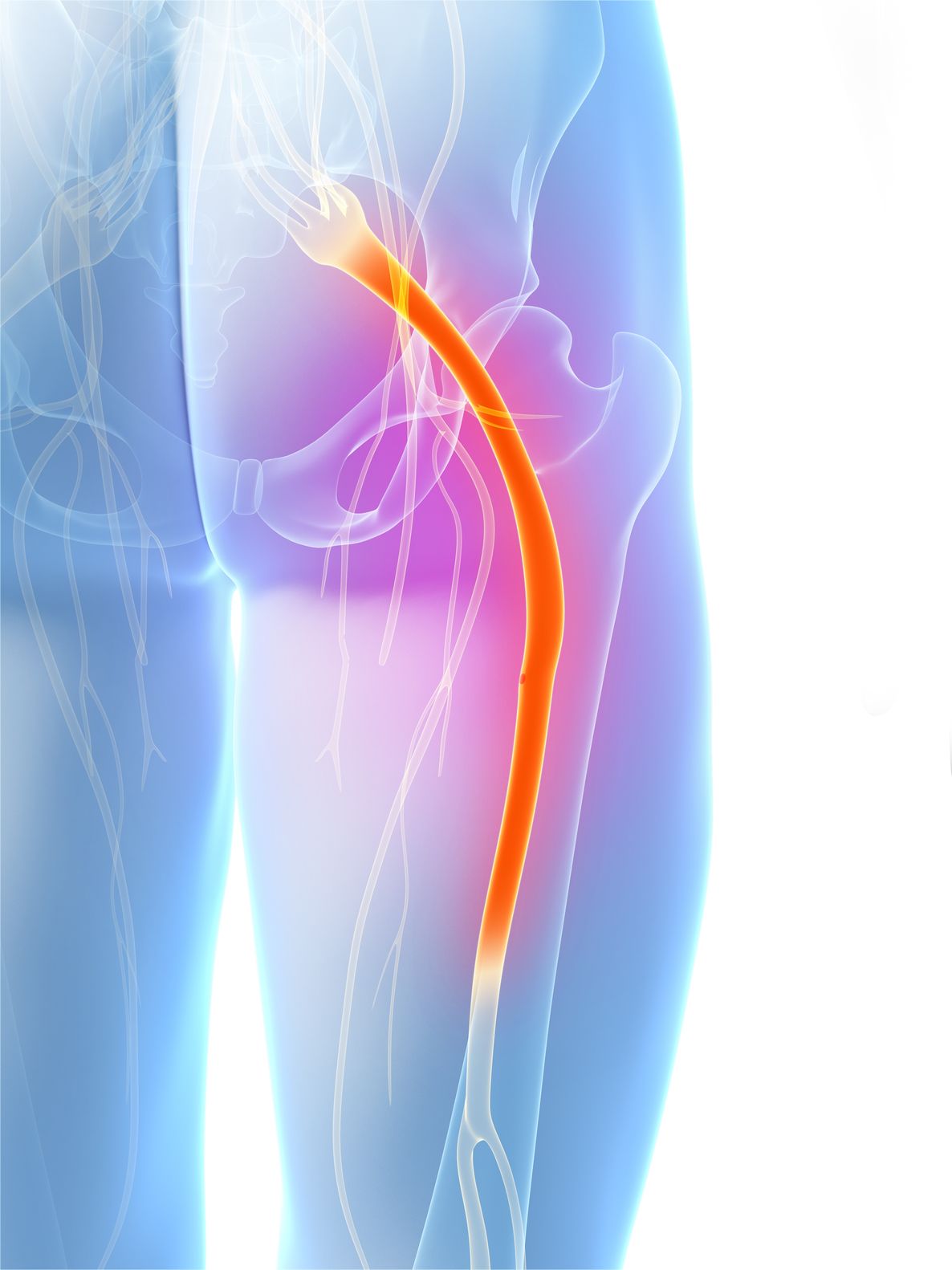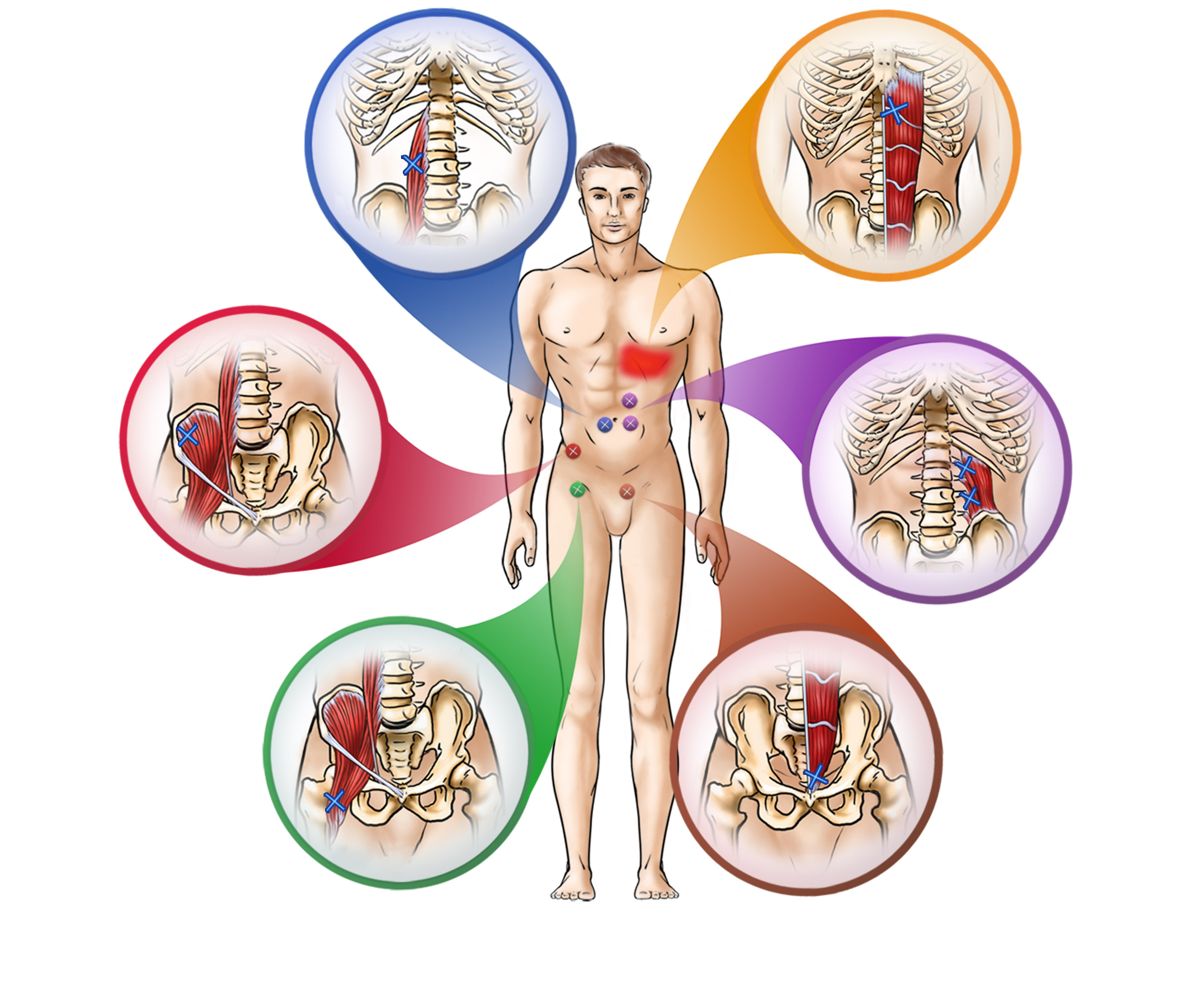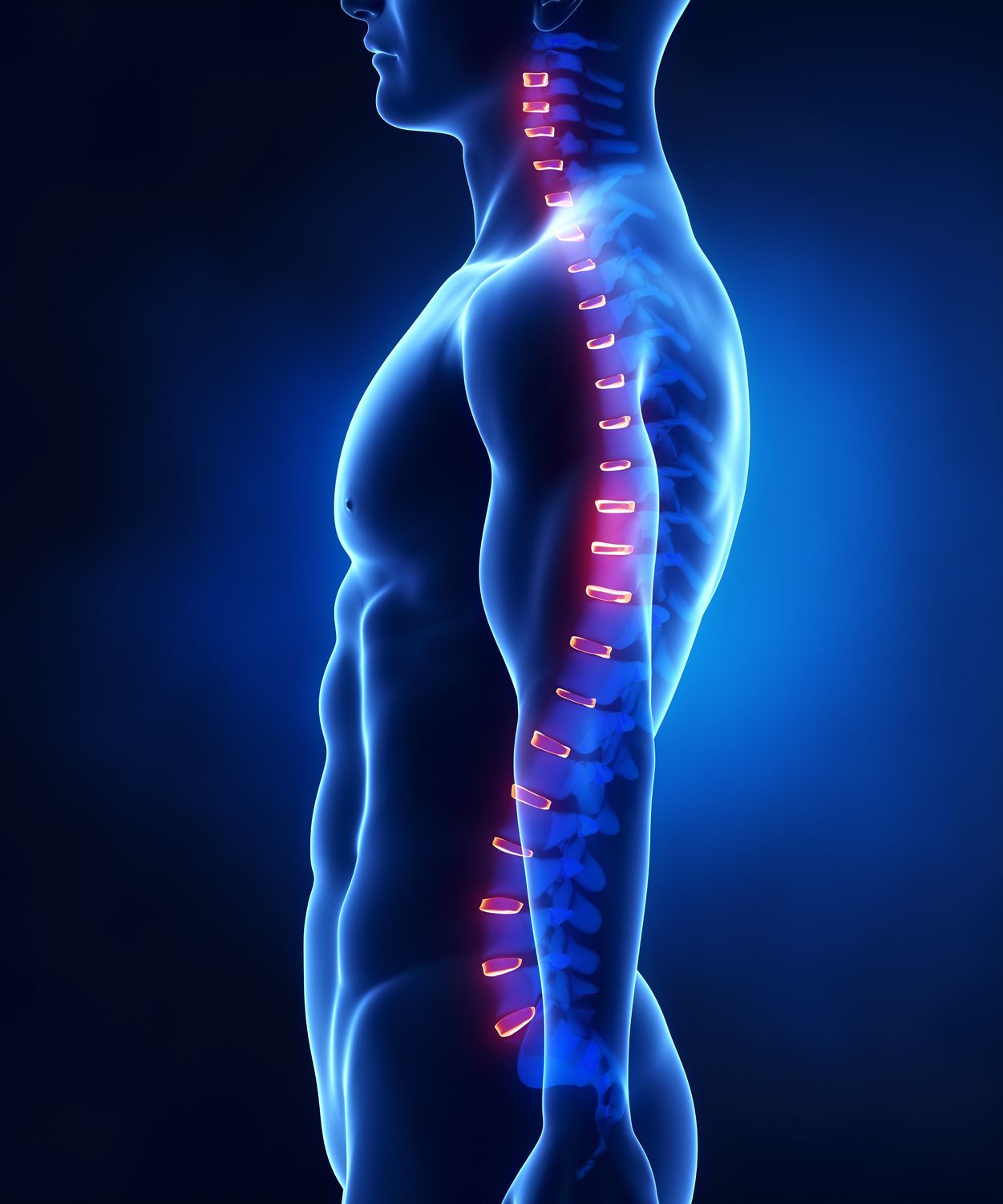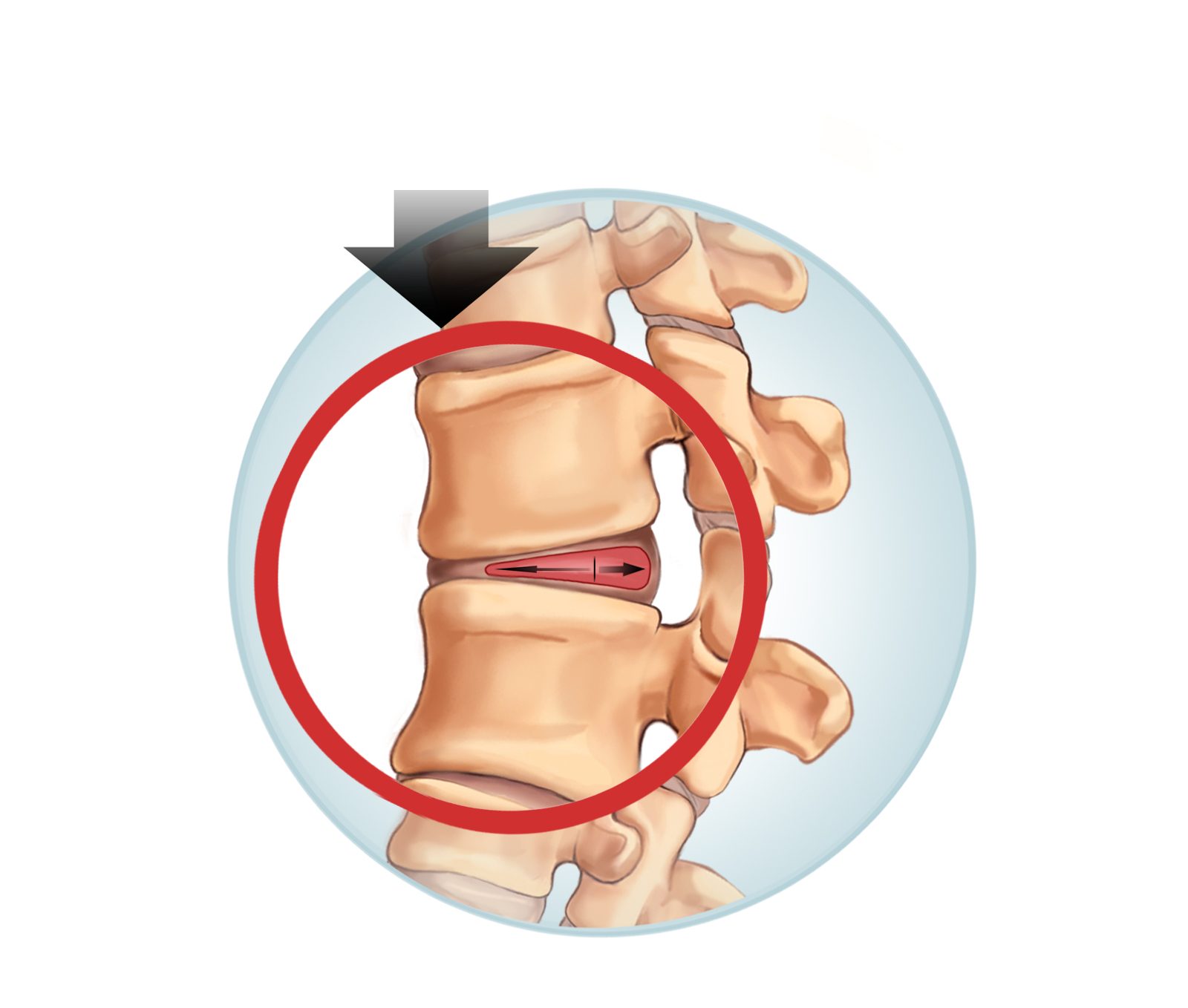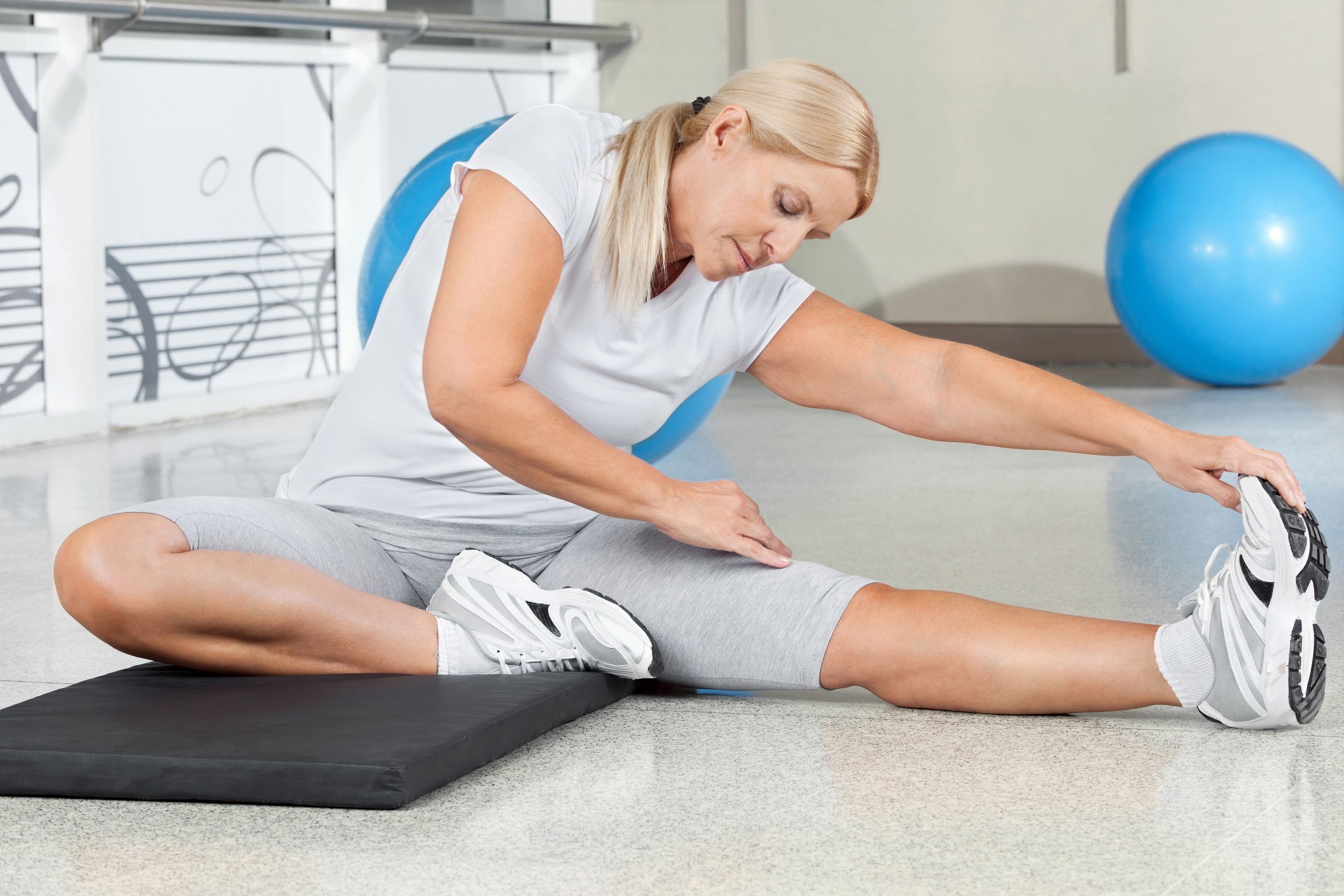How To Treat Your Pinched Nerves…
If your pinched nerves are caused by a bulging or herniated disc, or by the gradual thinning and drying out of your intervertebral disc, OR if your nerve is pinched by your overly tight piriformis muscle…
…then this page is for you, because here you will discover what you can do to get your discs back to full health, leaving more room for the nerves coming out of your spine to become un-pinched.
And ofcourse you will also learn how to easily rid yourself of your piriformis muscle sciatica nerve impingement, if that is what is bothering you!
Pinched Nerve Treatment
Here’s What To Do To Give Your Pinched Nerves More Room
Your intervertebral discs sit between vetrebrae and when your discs are healthy they allow you to move your back freely and without pain – bending, flexing, twisting, turning, rotating, all these moves are only possible with healthy discs.
If your discs get dry, your vertebrae get thinner and as a result get closer to each other, leaving less and less space for the nerves to come out of your spine un-pinched…
Herniated disks can also cause nerve impingement. Simply because a disc herniation, whether posterior (backside) or anterior (frontside) means that a part of your disc bulges or herniates out of the place where it should be, and in doing so can easily exert pressure on the nearest nerve.
In any of these cases it will pay to create space between your vertebrae again, and to do that, you need to understand the role that your back-muscles play – especially in the hydration and health of your discs…
Back Muscles And Pinched Nerves
There is one more condition that can also cause nerve impingement, it is called slipped disc or sometimes it is also called vertebral subluxation. It refers to an incomplete or partial dislocation of the vertebrae of your spine.
I mention this condition because it is a good example of what can go wrong in the spine and how your muscles also play a role in that.
Are Your Muscles Too Tight?
Many people have overly tight (hypertonic) muscles.
I ran into research done by a group of australian physiotherapists, who found that when a back pops out, there is a special group of deeper lying muscles that are permanently damaged as a result. These are the tiny multifides muscles. And these muscles are deisgned to provide core stability to the spine. Now when these muscles are damaged, they often stop working alltogether, leaving you with a spine that now has a segment that has become inherently instable.
The effects of a back popping out on the multifides muscles can easily be felt (palpated) by a good physiotherapist. At the spot where your back popped out, your physio can feel that the multifides muscles get thinner and thinner over time. Fortunately this condition can be corrected by some simple exercises that will fire up those small muscles in isolation.
Ofcourse when one spinal segment of your spine is unstable, your body will notice this and try to correct this. But since the multifides muscles can no longer be properly fired up, your body willl fire up some other nearby muscles to seek to reinstate core stability. And here’s the trouble with that…
When your body activates other muscles to take over the job of the multifides muscles, you will inevitably see that these muscles that now try to provide core stabilty, are not as good at it as the ones that were designed for it. And to make matters worse, these muscles react with staying too tight for far too long – hence your tight muscles…
Usually the (bigger and stronger) muscles that take over, pull way too hard and before you know it your back is cramped and some part of your spine is pulled slightly out of the proper position, and if and when that happens, we call that a vertebral subluxation.But also if none of your vertebrae is pulled out of place, the tightness of your muscles is a problem in itself.
Because tight muscles limit movement (which is needed for healthy discs) AND it limits your body’s ability to elongate overnight, which also results in declined health of your discs.
Alltogether this will leave you with a stiff and tight back that is more and more prone to further trouble. I could say more about this, but for the sake of brevity and simplicity I will continue with an explanation of how to counter and correct this. Please just remember, that hypertight muscles are not a good thing which you need to correct.
How To Correct Your Pinched Nerve Troubles
Like I said before, bulging or herniated discs are the result of a gradual decline in health of your intervertebral discs. Once your discs are weakened, dried out and more brittle, it does not take much for them to bulge or herniate. Wrong posture while lifting or sitting could then provide the straw that breakes the camel’s back – and in this case it will be your disc that gives in.
The best thing to do is to add some natural body wisdom to your daily life again. Most of us have lost all of our natural body wisdom, mostly due to our predominantly sedentary lifestyles. What we call progress does not come cheap!…
OK, here’s what you can work on:
– restoring health to your intervertebral discs, whether already bulged or herniated or not;
– restoring core stability to your spine at the deepest level by reactivating the deepest lying muscles;
– relaxing cramped muscles that just work too hard at jobs they should never have to do if all other muscles would still kick in nicely when needed;
– relaxing your piriformis muscle so it can NOT cause nerve impingement of your sciatic nerve.
OK, here’s what you need to do to provide room for your pinched nerves:
do some gentle moving exercises so your discs will receive all fluids they need to get back to full health, once your discs swell up more, they will automatically give more room to your pinched nerves to become un-pinched;
do some muscle relaxing exercises that will gently and quitely ‘force’ any tensed muscle in your spine to let go of all tension that has been built up over time, when this happens you will find that your nights of sleep get better and more relaxed and resting as well, once you get this in order again, you will realize how much energy you lost in bad and unrelaxed sleeping;
do some special exercises that aim to ONLY fire up the deepest lying muscles around the core of your spine, so basic core stabilty gets restored and so the other muscles can relax and let go of the tension and tightness they have caused in your back, the trick here is to train your multifides muscles IN ISOLATION;
make sure you re-train your body in some simple natural body wisdom, BTW: most of us still had this when we were younger, so fortunately this is often not a matter of learning something new, but rather the return to something that our bodies still know how to do and also still remember how good it felt, which means working on your natural posture techniques. And research shows this comes easy enough once you tap into the subconscious muscle memory that each of us has (like bicycling or ice-skating, you might not have done it for years, but once you get on the bicycle, or on your skates, your muscle-memory kicks in and you skate or cycle away as if yesterday was your last time..);
And if your piriformis muscle is tight, all you need to do is gently, very gently coerce that pear-shaped muscle to relax and let go of the tension;
Lastly, if you can add some natural decompression to your arsenal of things you can do. Spinal decompression is nothing else than taking the pressure of your discs, and if you do that, your discs will more eaily swell back up to the fullest extent possible, creating more and more space for your nerves to get un-pinched again, while at the same time relaxing your spinal muscles as well. Spinal decompression can be done with special equipment, but also with special decompression exercises.
So there you have it, it boils down to doing some simple exercises, but please make sure you do the right GENTLE exercises, not every exercise is good, fanatical stretching may be the last thing your pinched nerves need at this time.
You will therefore need to spend some time finding the right exercises, the internet abounds with free exercises, since you are still reading this, you now hopefully know what to look for in exercises. Oh, and if you want to skip all the searching, why not click on the picture below and I’ll take you to the exercises that helped me – AND many others as well – get rid of all pinched nerve troubles with the best treatment for pinched nerves, which is the treatment YOU can give yourself!



